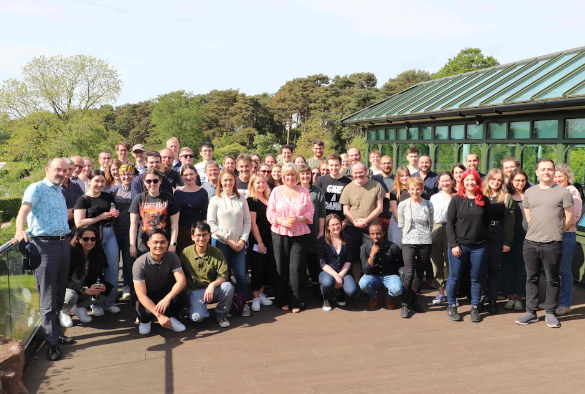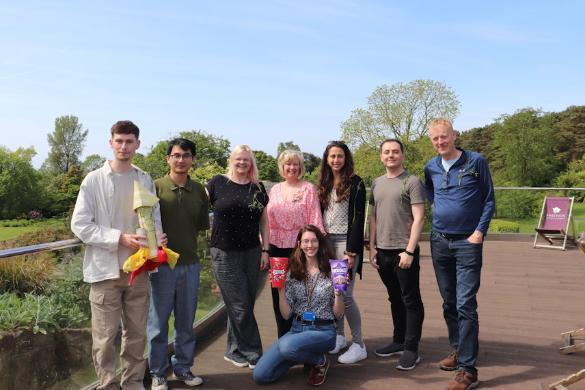Parasitoids to pests: ecologists share their research

Earlier this week the Department of Evolution, Ecology and Behaviour gathered at a sunny Ness Botanic Gardens for the Department’s annual Research Colloquium.
The event brought together staff and students for a fascinating insight into the diverse research taking place across the Department. Professor David Atkinson started the day with a presentation on his research into how global warming is shrinking Earth's aquatic animals. Dr Jordan Jones followed, explaining her research into fly defence against parasitoid wasps and the role of symbionts and genes.
The keynote lecture was delivered by Professor Amanda Bretman from the University of Leeds, who gave an overview of her research into the effects of social environment in flies, the role of epigenetics and microbiome.
After lunch the postgraduate student representatives took charge, with attendees split into groups to develop research ideas. The groups then pitched their ideas with the audience voting for a winner. Ideas ranged from wolf squirrel repellent to developing AI to identify plants from social media images, in order to map plant abundance across the UK. The winning pitch was using the Sticky Willy plant (Galium sp.) for sustainable space travel - you really had to be there.

The afternoon session featured two talks from PhD students Sophie Lyth and Megan Parker. Sophie explained her research into selfish genes manipulating sex ratios. Megan discussed her research into reducing insect pests on cereal crops by exploiting beneficial species interactions. This included some research that was carried out in Ness Gardens.
Professor Mark Viney, Head of the Department, said: “Our annual Colloquium is one of my highlights of the year. It demonstrates not only our impressive range of research but also the collegiality across the Department. We had a great day with staff and students sharing their science and learning from each other”.